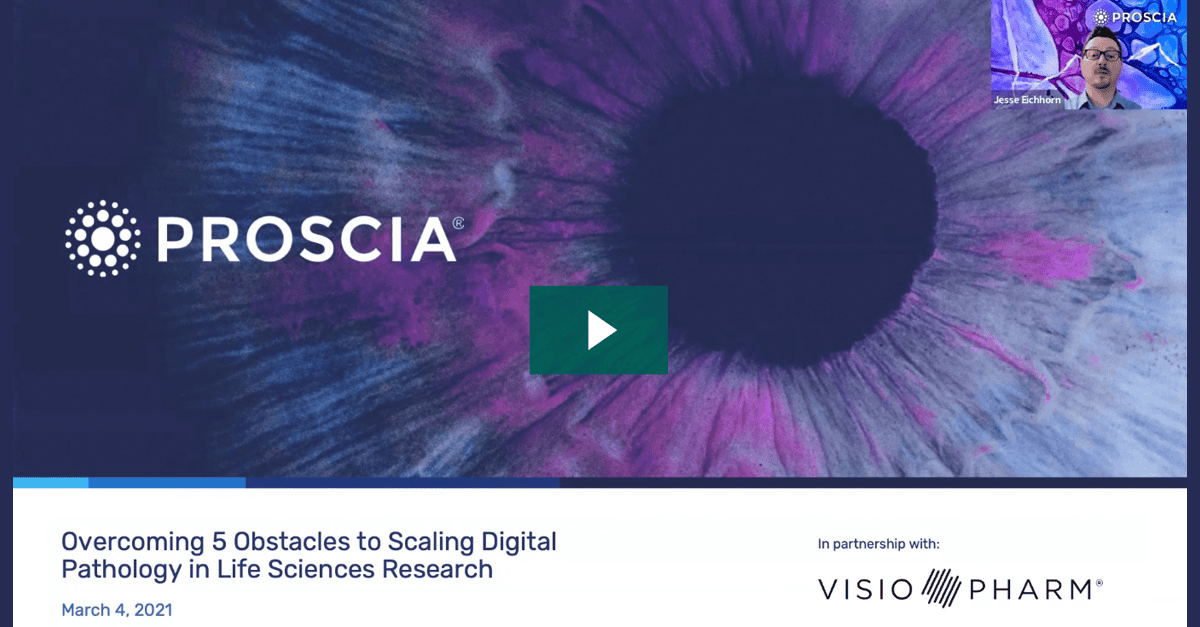Is your digital pathology implementation holding you back from realizing the full potential of your data?
Join this short, moderated discussion to learn how to overcome 5 common challenges life sciences organizations experience as they scale their digital pathology operations. These challenges range from data standardization to collaboration, and our panel of experts will discuss the implications of each and how to go about addressing them.
As you continue expanding digital pathology to drive research, overcoming these 5 obstacles is critical to creating an enterprise-wide digital ecosystem to drive more informed decision-making.
Presented at as a joint webinar with Proscia on March 4, 2021.
-
- Struggle to collaborate with internal and external experts
-
- Have data distributed across your organization, slowing down your work and siloing your analysis
-
- Are looking to get more value from the data you have

Regan Baird, PhD, Scientific Consulting Sales Manager, Visiopharm
Regan has been with Visiopharm, Inc. since October 2015 and currently manages the eastern half of North America. Beginning with his Ph.D. at Temple University in Philadelphia and Post-Doctoral Fellowship at Beth Israel Deaconess Medical Center in Boston, he has spent over 20 years translating cellular and tissue based digital image analysis to biologists. Regan enjoys empowering pathologists with new digital tools to augment their workflow and enrich tissue-based analyses.

Ash Wilson, Product Manager, Research, Proscia
Ash Wilson is the Product Manager for Life Sciences at Proscia and has been in Life Sciences for over 15 years. She also has nearly a decade’s worth of field experience, including labs in digital pathology serial staining practices.


